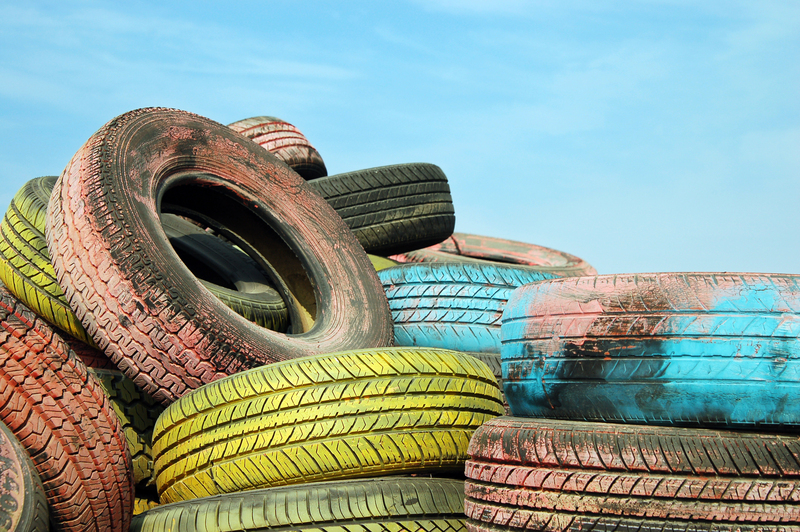Reducing Oceanic Plastic Pollution
The issue of plastic pollution in our oceans has reached critical levels, threatening marine life, ecosystems, and even human health. According to research, millions of tons of plastic waste enter the ocean each year, leading to devastating effects on wildlife and the environment. This article delves into the causes, consequences, and solutions aimed at reducing oceanic plastic pollution.
Understanding the Scope of Oceanic Plastic Pollution
Plastic pollution in the oceans primarily stems from land-based sources such as improper waste disposal, littering, and activities in coastal areas. The lifespan of plastic is extensive, often taking hundreds or thousands of years to decompose. This means that plastics accumulate over time, resulting in vast accumulations in the ocean, such as the Great Pacific Garbage Patch.

The Impact on Marine Life
Plastic pollution affects marine life in numerous ways. Birds, fish, and marine mammals often ingest plastic debris, mistaking it for food. This can lead to internal injuries, starvation, and even death. Entanglement is another significant issue; animals can become ensnared by plastic waste, which can impede their movement, cause injuries, and increase their vulnerability to predators.
Effects on Ecosystems
Plastic pollution isn't just harmful to individual animals but has far-reaching consequences for entire ecosystems. Coral reefs, for example, can be smothered by plastic waste, which prevents sunlight from reaching the corals and hinders their growth. Mangroves and other coastal habitats are also not spared. Their root systems can become clogged by debris, affecting the overall health and stability of these vital ecosystems.
Human Health Implications
Plastic pollution doesn't only affect marine life; it also poses risks to human health. Microplastics--tiny plastic particles less than five millimeters in size--have been found in various marine and terrestrial environments. These particles can enter the food chain, eventually reaching humans who consume seafood. Accumulation of microplastics in the human body has been linked to various health issues, including digestive problems, hormone disruption, and even cancers.
Innovative Solutions for Reducing Plastic Pollution
Tackling oceanic plastic pollution requires a comprehensive approach that includes prevention, cleanup, and innovative technologies. Below are several key strategies that hold promise:
1. Improved Waste Management Systems
One of the most effective ways to combat plastic pollution is by improving waste management systems. This involves not only increasing the efficiency of recycling programs but also ensuring that waste is properly collected and processed. Governments and communities must invest in infrastructure that can handle plastic waste responsibly.
2. Banning Single-Use Plastics
Many countries and regions have begun to implement bans on single-use plastics, such as plastic bags, straws, and cutlery. These measures can significantly reduce the amount of plastic entering the ocean. Consumers can also play a role by choosing reusable alternatives.
3. Ocean Clean-Up Initiatives
There are several large-scale initiatives focused on cleaning up existing plastic pollution in the oceans. Organizations like The Ocean Cleanup are developing advanced technologies designed to collect and remove plastic from the water, targeting areas with high concentrations of waste.
4. Innovations in Biodegradable Plastics
Another promising avenue is the development and use of biodegradable plastics made from natural materials, such as cornstarch or algae. These materials break down more quickly than traditional plastics, reducing their long-term impact on the environment.
5. Public Awareness Campaigns
Education and awareness are crucial in the fight against plastic pollution. Campaigns that highlight the dangers of plastic waste and promote sustainable practices can help change public behavior. Schools, media, and non-profit organizations play a pivotal role in spreading this message.
The Role of Policy and Legislation
Policy and legislation are vital in the effort to reduce oceanic plastic pollution. Governments can impose regulations that limit the use of plastics, incentivize recycling, and hold corporations accountable for their waste. International cooperation is also essential, as plastic pollution is a global problem that requires a unified approach.
The United Nations Environment Programme (UNEP) has been instrumental in bringing countries together to address this issue. Initiatives like the Clean Seas Campaign aim to reduce the use and production of single-use plastics globally. Additionally, many countries have signed agreements such as the Basel Convention, which controls the transboundary movement of hazardous wastes and their disposal.
Corporate Responsibility
Corporations also have a significant role to play in reducing oceanic plastic pollution. Many companies have started to adopt more sustainable practices, such as using recycled materials, reducing packaging, and promoting zero-waste initiatives. However, more can be done. Businesses must innovate to create products that are both environmentally friendly and economically viable.
Extended Producer Responsibility (EPR) is a policy approach in which producers are given a significant responsibility--financial and/or physical--for the treatment or disposal of post-consumer products. Implementing EPR policies can drive companies to design products that are easier to recycle and dispose of, reducing the overall plastic footprint.

Individual Actions and Behavioral Change
While governmental and corporate actions are crucial, individual behavior changes are equally important. Simple actions can collectively make a significant impact. Here are some steps individuals can take:
- Use reusable bags, bottles, and containers.
- Avoid products with excessive plastic packaging.
- Participate in local clean-up projects.
- Support companies and policies that promote sustainability.
- Educate others about the importance of reducing plastic waste.
Conclusion
Reducing oceanic plastic pollution is a complex challenge that requires a multifaceted approach. From policy changes and corporate responsibility to individual actions and technological innovations, every effort counts. By working together, we can combat this issue and protect our oceans for future generations.
Addressing plastic pollution is not only essential for the health of our marine environments but also crucial for the well-being of all life on Earth. Let us all contribute to making our planet cleaner and more sustainable by taking proactive steps to reduce, reuse, and recycle plastic waste.
